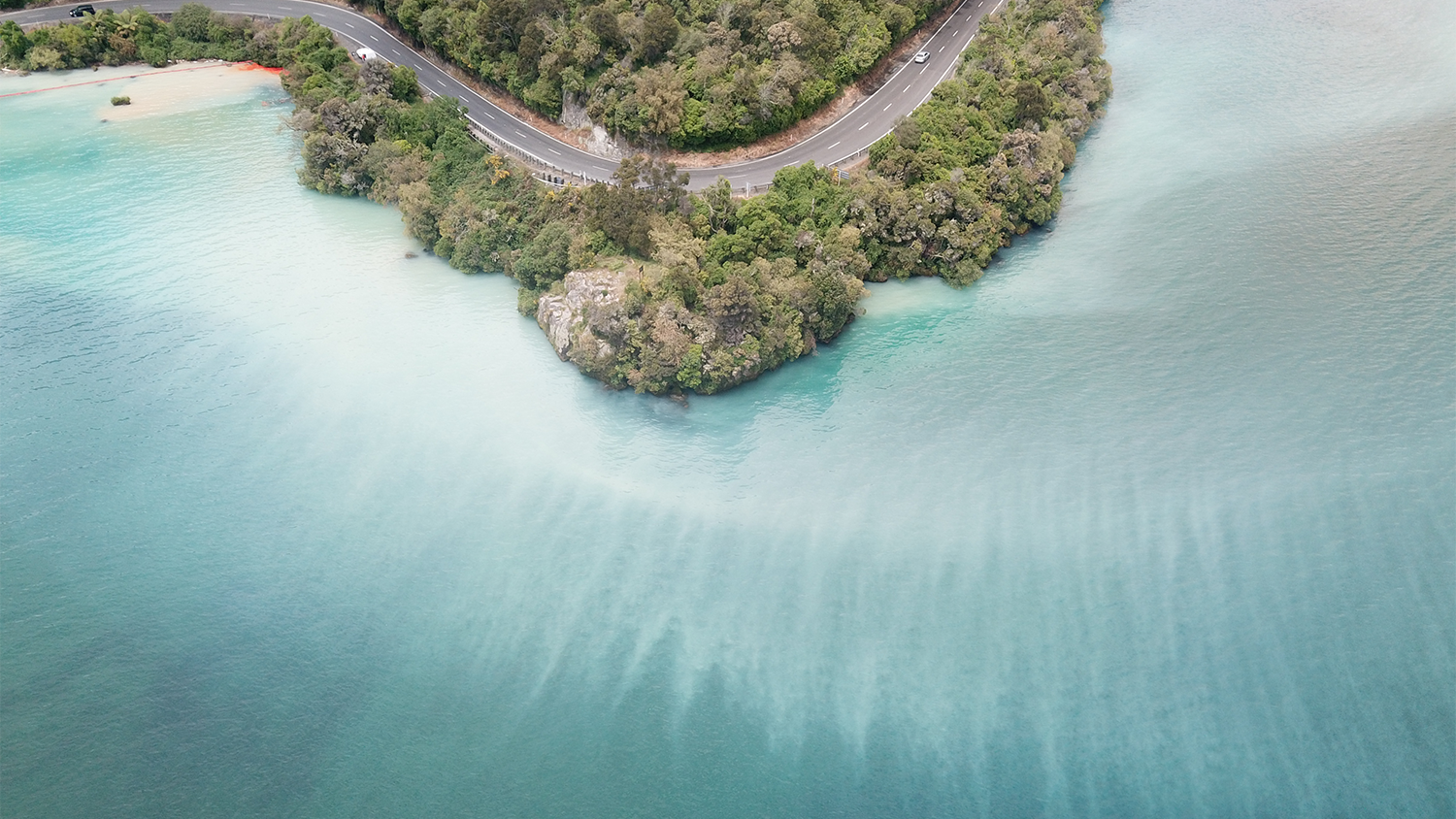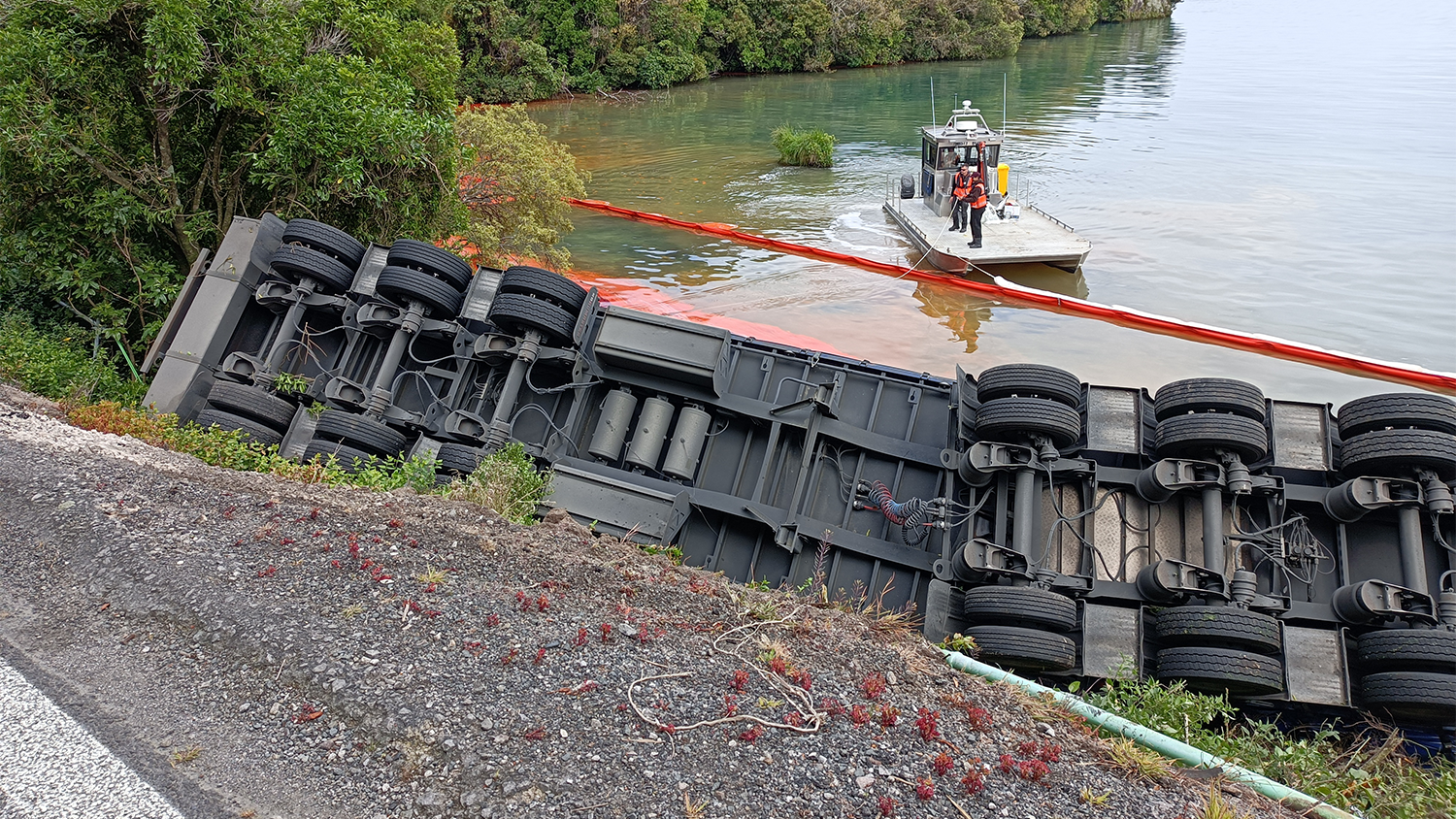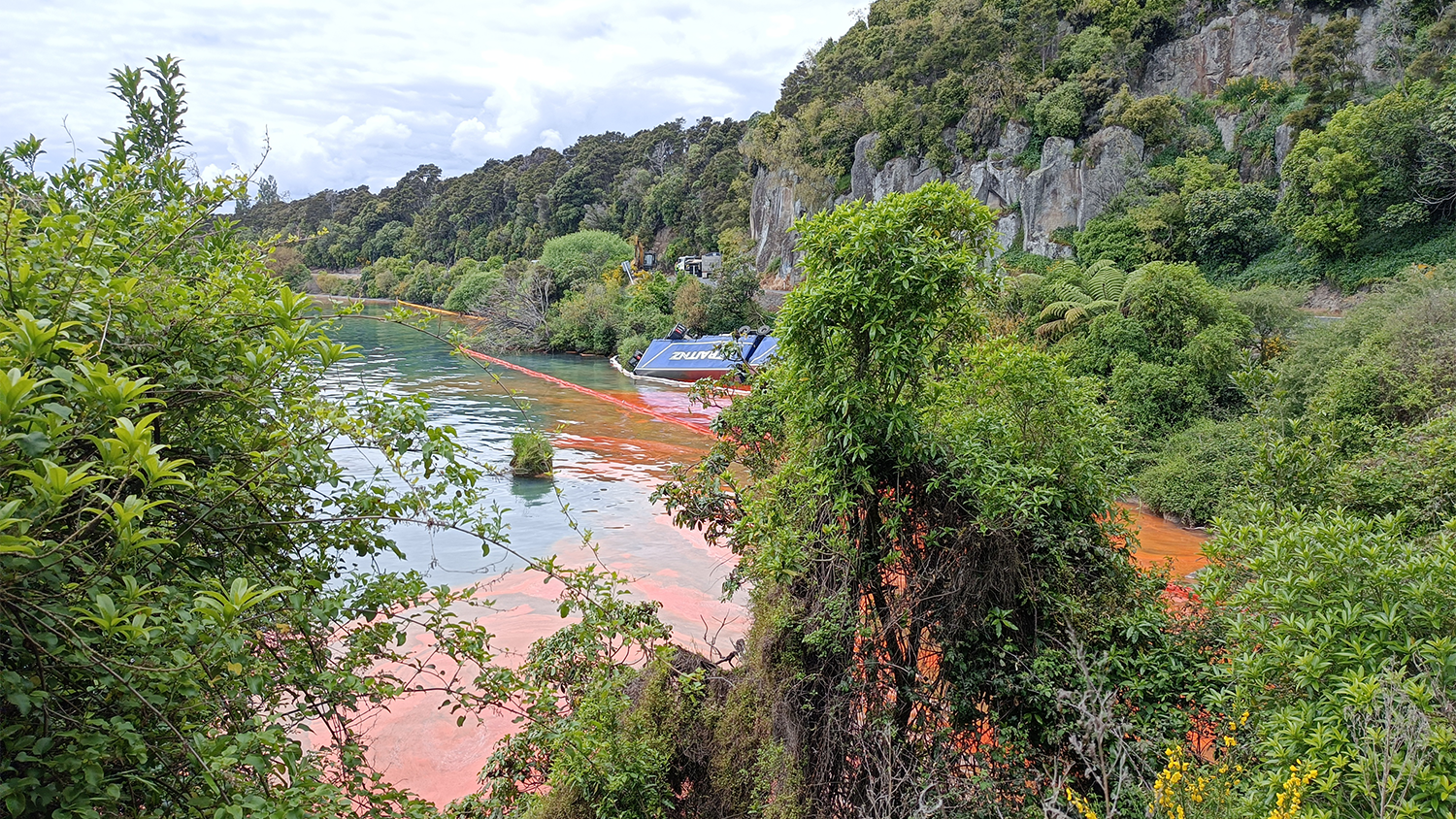Working with the community and stakeholders ahead of time proved its worth when a B-train truck and trailer tipped off State Highway One into Lake Taupō at Te Pōporo | Bulli Point in November last year.
The truck rolled off the road at around 4:30am on Sunday, 6 November and came to a halt by tipping completely on its side, half submerged in water. The wreck lost around 13 tonnes of krill oil, three tonnes of frozen meat, 300 kilograms of milk powder, and a variety of electrical equipment directly into the waters of Lake Taupō.
At any time day or night, our incident response team and multiple partners are ready to respond. Our staff were part of a coordinated, team effort to keep people safe, recover the wreckage and protect the environment. They began contacting all the right people, including the Lake Taupō Harbourmaster, who had people on the scene before we arrived.
The krill oil stained the water bright orange, but the harbourmaster used two inflatable booms to encircle the spillage and confine it to one corner before the spill’s toxicity could be determined. Our response team flew a drone over the scene to track the milk powder as it dispersed quickly away from the crash site; as a precaution, the team contacted locals who draw water nearby and advised them to limit their intake.
Meanwhile, our science team was busy testing the water quality near the site and investigating the potential contamination in the water and surrounds. Fortunately, they determined that the sunlight and surface waves would break down the krill oil fairly quickly.
Removing the truck and its content from the lake proved a complex and delicate task; the site has no roadside shoulders so SH1 was closed for 30 hours while the wreck was cleared. This was a particularly challenging situation for Waka Kotahi, New Zealand Transport Agency. A local crane company needed two 50-tonne cranes to hoist the truck and trailer unit from the water.
Over this time, the oil gradually lost its orange hue and continued breaking down. But the thawing meat was a different story, evading the booms in choppy and windy conditions early on. The harbourmaster meticulously traced and captured three tonnes of meat over the next several days.
This incident proved that planning ahead and working together reap rewards. About one year earlier, Tūwharetoa Māori Trust Board approached the council concerned that the people and organisations with the resources around the lake were not as engaged with each other as they could be. In response, the council created a spill response plan that brought these people and resources together for times like this.
The plan saved precious time because the critical contacts were already established, and partners had built capability ahead of time. Genesis Energy owns the inflatable booms, but the first people on site had already practised setting them up just to be ready.
As the regional environmental regulator, we actively engaged the company that owned the truck to take responsibility for the incident. The New Zealand Police were also involved and have since followed up on the driving behaviour that caused the incident in the first place. The good work of the response team and all of the partners involved meant the lake sustained minimal effects.
Waikato Regional Council’s Manager – Regional Compliance Patrick Lynch says the council would like to acknowledge the contributions of all involved, including Tūwharetoa Māori Trust Board, Lake Taupō Harbourmaster (Department of Internal Affairs), Fire and Emergency New Zealand, New Zealand Police, Waka Kotahi, Genesis Energy, McLeod Cranes, Taupō Towing & Recovery, Lakeland Excavators, Chorus, Downer New Zealand, Taupō District Council and local residents.







To ask for help or report a problem, contact us
Tell us how we can improve the information on this page. (optional)